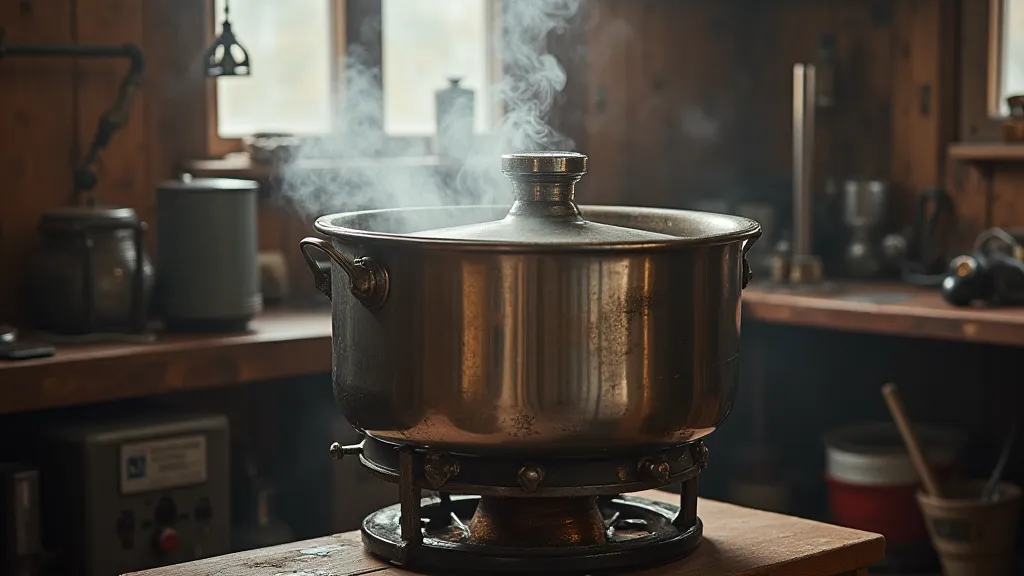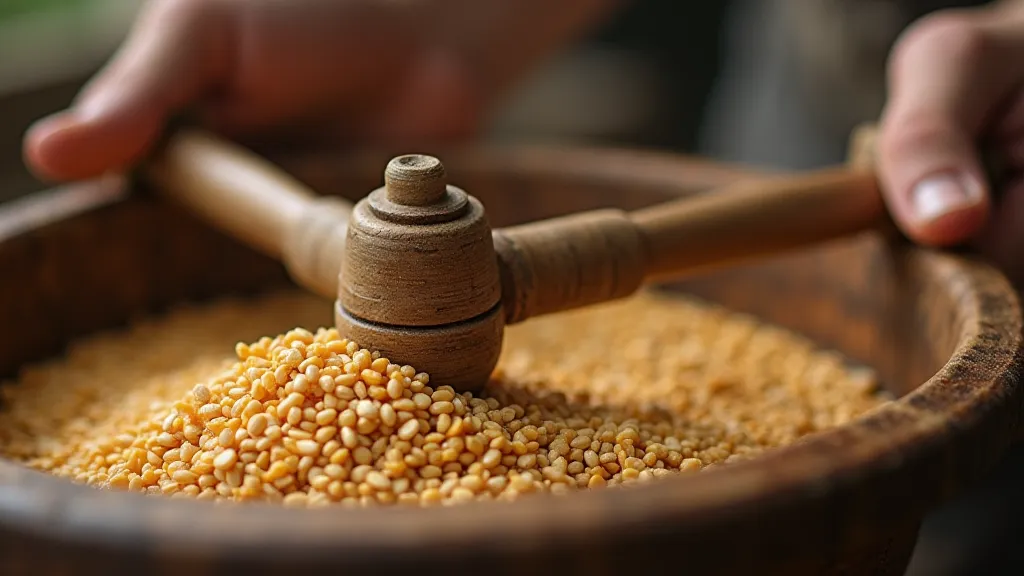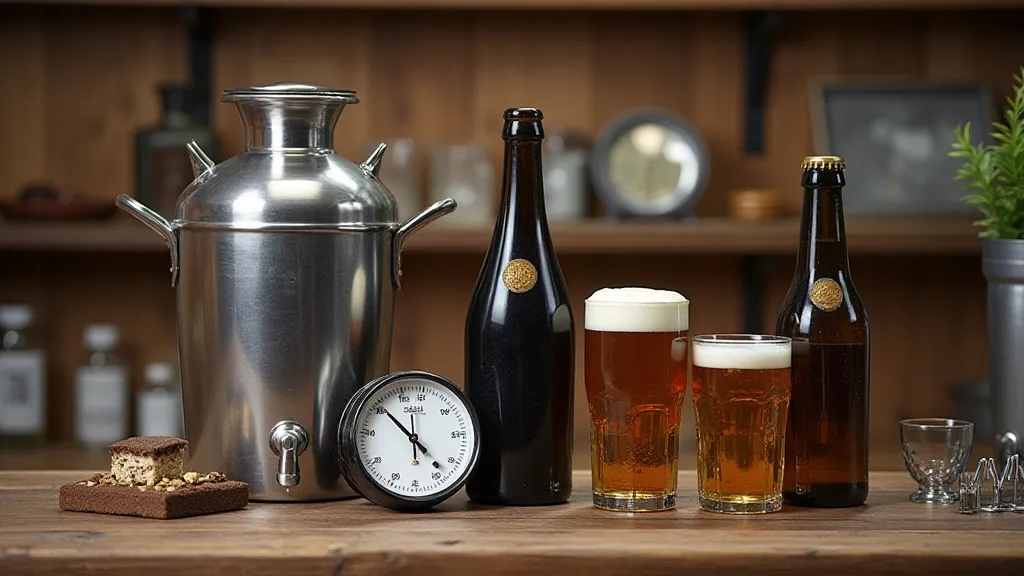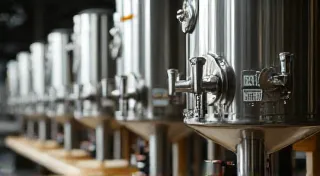Essential Brewing Equipment: A Comprehensive Guide
So, you're ready to dive into the wonderful world of home brewing? That's fantastic! But before you start dreaming of perfectly poured pints, you'll need the right equipment. This guide breaks down the essential brewing gear, separating the "must-haves" from the "nice-to-haves," so you can get started on the right foot.
The Absolute Must-Haves
These are the pieces of equipment you simply can’t brew without. Skimping here isn't a good idea.
1. Brew Kettle
The kettle is your primary cooking vessel. Size matters: a 5-gallon kettle is a good starting point for brewing 3-gallon batches, while a 10-gallon kettle allows for 5-gallon batches with more room for boil-overs. Stainless steel is the preferred material for its durability and ease of cleaning.

2. Fermenter
This is where the magic happens – where yeast converts sugars into alcohol. You'll need a food-grade plastic bucket or a glass carboy. The size should be appropriate for your batch size, leaving some headspace. Airlock is essential to prevent oxygen from entering and unwanted critters from contaminating your beer.
3. Airlock
This simple device allows CO2 to escape your fermenter while preventing oxygen and contaminants from entering. They’re inexpensive and crucial for preventing oxidation and infection.
4. Bottling Bucket & Spigot
For bottle carbonation, a bottling bucket makes transferring your beer from the fermenter to the bottles much easier and cleaner. A spigot is essential for easy transfer.
5. Bottles & Caps
You’ll need enough bottles for your batch. Brown bottles are best to protect your beer from light. Don't forget the caps!
6. Bottle Capper
To seal those bottles, you’ll need a bottle capper and bottle caps.
7. Hydrometer & Test Jar
A hydrometer measures the specific gravity of your wort (unfermented beer), allowing you to track fermentation progress and calculate your beer's alcohol content. A test jar is needed to hold the wort for the hydrometer reading.
8. Sanitizer
This is arguably the *most* important piece of equipment. Proper sanitation is vital to prevent infections that can ruin your beer. Star San or a similar no-rinse sanitizer is highly recommended.
Nice-to-Haves: Leveling Up Your Brewing
These items aren’t essential to *start* brewing, but they’ll make the process smoother, more efficient, and potentially improve your beer.
1. Wort Chiller
Rapidly cooling your wort after the boil reduces the risk of contamination and helps to create a cleaner-tasting beer. Immersion chillers and counterflow chillers are common options.
2. Refractometer
A refractometer provides a quicker and easier way to measure specific gravity than a hydrometer, although it's not as accurate.
3. Grain Mill
If you’re using grains, a grain mill allows you to crush them yourself, which can improve extraction and flavor. Pre-crushed grains are available, but milling your own offers more control.

4. Auto-Siphon
An auto-siphon makes transferring beer much easier and reduces the risk of oxygen pickup.
5. Thermometer
Accurate temperature control is crucial for good beer. A thermometer helps you monitor mash temperatures and wort chilling.
6. Brewing Software/App
Many apps and software programs are available to help you track recipes, fermentation, and other brewing tasks.
Getting Started: Prioritizing Your Purchases
You don't need to buy everything at once! Focus on the “must-have” equipment first. As you gain experience and experiment with different beer styles, you can gradually add the “nice-to-have” items to your arsenal. Brewing is a journey, and the right gear can make it even more enjoyable!






